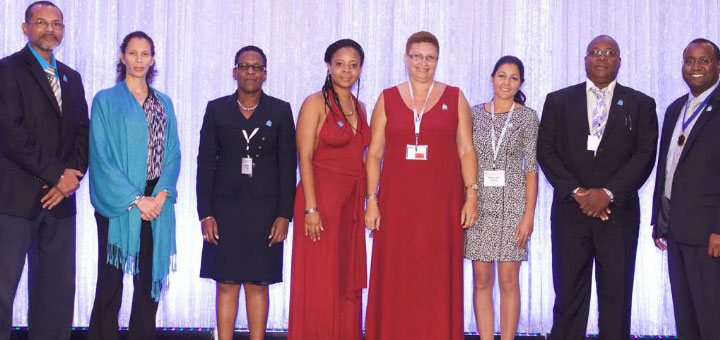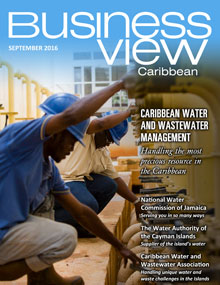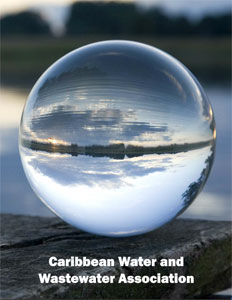Caribbean Water and Wastewater Association
Handling unique water and waste challenges in the Islands
Business View Caribbean profiles Caribbean Water and Wastewater Association , the Association of professionals & practitioners for water & waste sectors.
The Caribbean Water and Wastewater Association (CWWA) is a regional, non-governmental organization established by an Act of Parliament in Trinidad & Tobago in 1991. Originally formed by a group of engineers, the initial purpose was to leverage the engineering expertise of water and wastewater experts throughout the Caribbean.
Over time, the Association’s scope expanded to represent water, wastewater, and solid waste professionals from public and private sectors. Today, CWWA membership includes not only engineers, but practitioners, scientists, technicians, policy developers – anyone involved with water and waste management.
Their mission is clear and commendable: CWWA brings together the Caribbean water and sanitation community for the protection of public health and the promotion of sustainable development. Through collective leadership, the Association positively influences advancements in technology, education, science, management, and country and regional policies in the water and sanitation field.
While the genesis of the CWWA has been rooted in the water and wastewater sector, the CWWA now deals with another sector that is very much related from an environmental standpoint, and that is waste management. Support of ongoing education and training in water supply, wastewater, and waste management, ensures an availability of skilled manpower and well-informed members of the public. The Association also encourages research and development in the water and waste sector, and publication of the results, to further the goal of technological advances in the Caribbean.
Conquering unique challenges
CWWA President, Jason Johnson, emphasizes that there are unique characteristics of water management in the Caribbean. “People assume, since we are all part of the same region, that all the problems are the same,” he says. “That is not the case. We have water scarcity in some areas and flooding issues in others. All manner of things being influenced by climate change, and by even the most conventional issues, like water mains that have been in use for decades and decades.”
To best handle distinct regional differences, the CWWA has designated national sections. Larger islands including Jamaica, Barbados, Trinidad, and the Bahamas each have one national section. Some of the smaller islands have sub-regional sections, giving them the ability to interact with one another. For example: Guadeloupe and Martinique are part of a French section; Saint Lucia and Dominica are part of another. As small islands, they are able to share input on their needs, even though they may not have enough attendance to sustain a national section.
The CWWA, itself, is comprised of the Executive Director, Executive Assistant, and an Executive Board, comprised of representatives throughout the region. Membership stands at approximately 400, in total, divided into four categories:
General member: a practitioner in the sector, either with a major corporation or as an individual. Representatives could be a professional who works for a private company, or someone who works under the Ministry – whether for an actual utility, or in a policy position related to a particular Ministry.
Corporate members: individual companies that usually exhibit in the annual CWWA Conference and Exhibition.
Associate members: students, or people on the periphery with semi-involvement in the sector, but not necessarily full, active involvement.
The CWWA also partners with another organisation called the Caribbean Water and Sewerage Association (CAWASA) to promote the Caribbean Water Operators Partnership (CariWOP) whose membership comprises water utility companies in a unique mentor/mentee relationship. Water Utility companies are “twinned” and share expertise, experiences, systems and information. Seminars and workshops foster awareness of new developments in water supply and waste disposal. “Professional Perspectives” is a CWWA-sponsored lecture series focusing on issues of importance to water and waste management entities in the Islands. A recent offering called “Rainwater in the Caribbean: Opportunities and Challenges” addressed the serious implications of ongoing water shortages. Educational presentations such as these, given by renowned experts, bring a wealth of insight and information to CWWA members and their respective communities.
Communication Builds Rapport
This year, the Association celebrates its 25th anniversary, and exciting plans are in the works to mark the milestone event during the annual CWWA Conference and Exhibition on October 24th – 28th at the Hyatt Regency Hotel in Trinidad.
Johnson notes, “The conference will feature workshops, professional forums, technical presentations, training sessions, an awards ceremony, and a full exhibition hall of vendors and service suppliers, showcasing the latest technology, and promoting their products and services. There is also a social aspect of the conference that’s about the distinctiveness of all the different Caribbean communities. The venue provides an exceptional opportunity for regional bodies to meet and helps them build rapport.” In addition, the CWWA and partners have organised the High Level Forum of Caribbean Ministers Responsible for Water (HLF) over the last eleven years and this year the 12th HLF will be convened in collaboration with the Caribbean Development Bank (CDB), the United Nations Environment Programme (UNEP), CARICOM, the Pan American Health Organisation (PAHO) and the Inter-American Development Bank (IDB).
The monthly CWWA Newsletter, “INFOstructure,” is distributed by email to all members, and online “Sector News” keeps them informed and up-to-date on current regional and international developments. The association has grown to realize the value of websites, email blasts, and social media as vital communication tools for connecting with their membership, and reaching out to others in the water and waste management sector.
On the advocacy front, Johnson explains the essential role played by CWWA. “We communicate with all the regional Ministers of government, to help advise them on topics related to water management. We put them in touch with relevant tech experts, policy developers, researchers, so the Ministries can make more effective decisions.”
Future prospects
Recently, the CWWA has signed some memoranda of understanding with its sister organization, the Pacific Water and Wastewater Association. PWWA is comprised of small countries, including Samoa, American Samoa, and Guam that are tasked with water management in their regions and are keen to share information. Johnson says, “We will be working more with them in the future, benchmarking small utilities and learning how climate resiliency is being applied in the Pacific sector in contrast to the Caribbean sector.”
CWWA is also working with the Global Water Partnership alliance to share perspective between Caribbean water utilities and those in North and South America. A major initiative, right now, is establishing a partnership with the American Water Works Association (AWWA), aimed towards improving the water management process in Haiti.
The Caribbean water sector is in the midst of significant change. Much of the infrastructure was developed in colonial times, and the needs and expense for operation of the water management systems have increased substantially. Investigation is ongoing regarding appropriate regional applications that are in the conceptualization and engineering stages. In fact no longer is water just an engineering or infrastructure matter but encompasses water resources, such as wastewater, rainwater harvesting and the involvement of communities in managing the resource.
“We are able to share that information,” says Johnson. “That’s our greatest value to members – as a resource to share perspective, applications, and solutions that are then applied in a regional context to deal with our changing environment. This includes everything from the increasing costs of water waste management, to handling and disposal of old electronics. We are the preeminent voice associated with the unique perspectives of Caribbean communities, and how they are handling various challenges given the limited resources of small island developing states.”
Check out this handpicked feature on The University of the Commonwealth Caribbean.
AT A GLANCE
WHO: Caribbean Water and Wastewater Association (CWWA)
WHAT: The preeminent Association of professionals and practitioners for water and waste sectors in the Caribbean
WHERE: Based in Trinidad, W.I.
WEBSITE: www.cwwa.net



